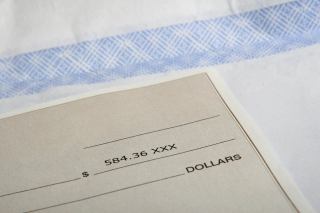 There are many inheritance scenarios, where people hope that a simple solution will save them time and money. Unfortunately, that’s not always the way estate or tax laws work.
There are many inheritance scenarios, where people hope that a simple solution will save them time and money. Unfortunately, that’s not always the way estate or tax laws work.
A woman received joint ownership of her father’s house about a decade ago. Her father is still living there, and so is her sister. The woman doesn’t pay for any of the expenses; she and her father take care of their own costs. The sisters plan on selling the home, after their father passes. The woman wonders if she can simply give her sister her half of the home and avoid paying any taxes.
This situation is expanded upon in recent nj.com article, “My sister and I own my father’s home. How can I avoid taxes?” The article notes that a sibling may give her half of a home owned in joint ownership to a sibling, but there may still be some tax consequences.
If the sister was to deed her share of the home to the sister, she would avoid any capital gains tax when the house is sold. However, then the sister would then be responsible for the payment of capital gains taxes, if any, upon the sale of the house.
Capital gains tax is defined as a tax imposed on the positive difference between the sale price of an asset (like a home) and its original purchase price. Long-term capital gains tax is a levy on the profits from the sale of assets held for more than a year.
The rates are 0%, 15%, or 20%, based on your tax bracket. Short-term capital gains tax applies to assets held for a year or less. These are taxed as ordinary income.
Capital gains can be decreased, by deducting the capital losses that happen when a taxable asset is sold for less than the original purchase price. The total of capital gains minus any capital losses is called the "net capital gains." Capital gains taxes aren’t assessed until the property is sold, but the sister living in the house will have a $250,000 capital gains exclusion.
In calculating the capital gains tax, the sister would be able to deduct the cost of any capital improvements and the costs of selling the home.
The siblings must be mindful that if the sister who deeds her share of the home to her sister dies within in three years of that transaction, the surviving sister would have to pay an inheritance tax in New Jersey and other states with similar inheritance tax rules. The inheritance tax in New Jersey is determined by the relationship of the deceased to the person who inherits the property.
The best solution would be to sit down with a Houston estate planning attorney, who is licensed to practice in your state. They will know what laws are applicable and the best way to structure this transaction.
Reference: nj.com (July 18, 2019) “My sister and I own my father’s home. How can I avoid taxes?”
 Houston Estate Planning and Elder Law Attorney Blog
Houston Estate Planning and Elder Law Attorney Blog

